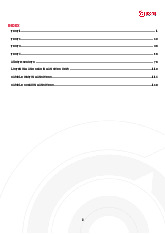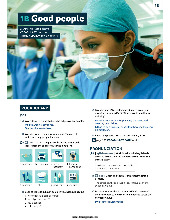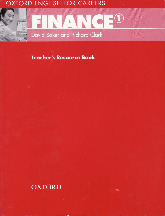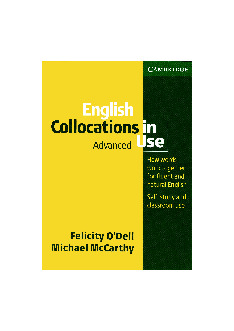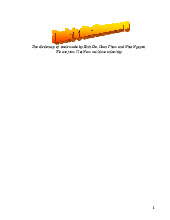









Preview text:
lOMoAR cPSD| 61200861
I. Khái niệm về câu tường thuật - Trực tiếp, gián tiếp
Câu tường thuật trong tiếng Anh (hay còn gọi là câu trực tiếp, câu gián tiếp) là một loại câu được
dùng để thuật lại một sự việc hay lời nói trực tiếp của ai đó. Giải thích một cách dễ hiểu hơn, việc
sử dụng câu tường thuật chính là bạn đang chuyển từ câu trực tiếp sang gián tiếp. -
Lời nói trực tiếp (direct speech): là nói chính xác điều ai đó diễn đạt (còn gọi là trích dẫn).
Lời của người nói sẽ được đặt trong dấu ngoặc kép.
Eg: She said ,” The exam is difficult”. "The exam is difficult" là lời nói trực
tiếp hay câu trực tiếp. -
Lời nói gián tiếp – câu tường thuật (indirect speech): Là thuật lại lời nói của một người
khác dưới dạng gián tiếp, không dùng dấu ngoặc kép. Eg: Hoa said,”I want
to go home” -> Hoa said she wanted to go home là
câu gián tiếp (indirect speech).
>>> TÌM HIỂU THÊM: •
Tất tần tật kiến thức về câu bị động (Passive Voice) - kiến thức thể bị động •
Tổng hợp kiến thức câu đảo ngữ trong tiếng Anh •
Toàn bộ kiến thức về câu tường thuật không thể bỏ lỡ
II. Cách chuyển câu trực tiếp sang gián tiếp
Khi chuyển từ một lời nói trực tiếp sang gián tiếp khá đơn giản, chúng ta chỉ cần ghép nội dung
tường thuật ở phía sau câu nói và hạ động từ của nó xuống một cấp quá khứ, đại từ được
chuyển đổi cho phù hợp. Tuy nhiên, cần lưu ý một số vấn đề sau:
+ Nếu động từ tường thuật (reporting verb) chia ở các thì hiện tại chúng ta giữ nguyên thì (tense)
của động từ chính, đại từ chỉ định và các trạng từ chỉ nơi chốn cũng như trạng từ chỉ thời gian
trong câu trực tiếp khi chuyển sang gián tiếp. Ví dụ: - He says: “I’m going to Ha Noi next week.”
⇒ He says he is going to Ha Noi next week.
He said that he was going to HN the following week. lOMoAR cPSD| 61200861
+ Nếu động từ tường thuật (reporting verb) của câu ở thì quá khứ thì phải lùi động từ chính về
quá khứ một bậc khi chuyển từ lời nói trực tiếp (direct speech) sang lời nói gián tiếp (indirect /
reported speech) theo quy tắc sau: •
Biến đổi thì của động từ và động từ khuyết thiếu theo bảng sau:
Câu tường thuật trực tiếp
Câu tường thuật gián tiếp
Present simple (thì hiện tại đơn)
Past simple (thì quá khứ đơn)
Present continuous (thì hiện tại tiếp diễn)
Past continuous (thì quá khứ tiếp diễn)
Present perfect (Thì hiện tại hoàn thành)
Past perfect (thì quá khứ hoàn thành)
Past simple (Thì quá khứ đơn)
Past perfect (thì quá khứ hoàn thành)
Present perfect continuous (thì hiện tại hoàn
Past perfect continuous (quá khứ hoàn thành tiếp diễn) thành tiếp diễn)
Past continuous (thì quá khứ tiếp diễn)
Past perfect continuous (quá khứ hoàn thành tiếp diễn) will would can could must/ have to had to may might •
Biến đổi đại từ và các từ hạn định theo bảng sau:
Câu tường thuật trực tiếp Câu tường thuật gián tiếp lOMoAR cPSD| 61200861 Chủ ngữ (Đại từ nhân I he/ she xưng) You I/ We/ They We We/ They Tân ngữ me him/ her you me/ us/ them us us/ them Đại từ sở hữu my his/ her your my/ our/ their our our/ their Tính từ sở hữu mine his/ hers yours mine/ ours/ theirs ours ours/ theirs
Đại từ chỉ định this the/ that lOMoAR cPSD| 61200861 these the/ those •
Biến đổi trạng ngữ chỉ thời gian và nơi chốn theo bảng sau:
Câu tường thuật gián tiếp
Câu tường thuật trực tiếp here there This That These Those now then/ at that moment today/ tonight that day/ that night tomorrow the next day next week the following week This week That week yesterday the previous day the day before Last day The day before lOMoAR cPSD| 61200861 last week the week before ago before The day before Two days before
NOTE: Khi chuyển động từ các bạn chỉ cần nhớ lấy động từ gần chủ ngữ nhất giảm xuống 1 cột tức là: •
Động từ ở cột 1 thì giảm xuống cột 2, ( nhớ thêm ed khi không phải là đông từ bất quy tắc) •
Động từ cột 2 thì giảm thành cột 3 •
Động từ cột 3 thêm had phía trước
Tuy nhiên, cần chú ý một số trường hợp sau đây không giảm thì động từ: •
Nói về chân lý, sự thật. • Thì quá khứ hoàn thành. •
Trong câu có năm xác định. •
Các câu có cấu trúc sau: if only, as if, as though, wish, would rather, it’s high time, IF loại 2, 3 .
III. Các loại câu tường thuật
1. Câu tường thuật ở dạng câu kể
S + say(s)/said + (that) + S + V
• says/say to + O -> tells/tell + O
• said to + O ->told+O Eg: He said to me”I haven’t finished my work” -> He told me he hadn’t finished his work. lOMoAR cPSD| 61200861
2. Câu tường thuật ở dạng câu hỏi a. Yes/No questions
S + asked/wanted to know/ wondered + if/wether + S + V -
Câu tường thuật ở dạng câu hỏi được đánh giá là một trong những dạng câu tường thuật
đơn giản và dễ nhận diện. -
Những câu hỏi ở dạng này thường được bắt đầu với các động từ tobe hoặc trợ động từ. -
Để có thể viết được câu tường thuật dạng câu hỏi yes/no question thì các bạn thực hiện
các bước như trên tuy nhiên cần phải lưu ý một số điều sau: •
Từ tường thuật sử dụng: “ask”, “wonder”, “inquire”, “want to know”,… •
Sau từ tường thuật/giới thiệu sẽ là “if” hoặc “whether” để thể hiện sự có/không.
Eg: ”Are you angry?”he asked -> He asked if/whether I was angry. b. Wh- questions
Để viết câu tường thuật dạng câu hỏi Wh- Question chúng ta cần lưu ý những điều sau: •
Lặp lại từ để hỏi sau từ tường thuật. • Đổi trật tự câu.
S + asked(+O)/wanted to know/wondered + Wh-words + S + V
* says/say to + O -> asks/ask + O *
said to + O -> asked + O.
Eg: "What are you talking about?”said the teacher. -> The teacher asked us what we were talking about.
3. Câu tường thuật ở dạng câu mệnh lệnh *Khẳng định:
S + told + O + to-infinitive
Eg: ”Please wait for me here, Mary.”Tom said -> Tom told Mary to wait for him there. *Phủ định:
S + told + O + not to-infinitive
Eg: "Don’t talk in class”,the teacher said to us. –> The teacher told us not to talk in class. lOMoAR cPSD| 61200861
4. Một số dạng câu tường thuật đặc biệt SHALL/
WOULD dùng để diễn tả đề nghị, lời mời
- Tom asked: 'Shall I bring you some tea?' ->
Tom offered to bring me some tea. - Tom
asked: 'Shall we meet at the theatre?' -> Tom
suggested meeting at the theatre.
WILL/ WOULD/ CAN/ COULD dùng để diễn tả sự yêu cầu -
Tom asked: 'Will you help me, please?' -> Tom asked me to help him. -
Jane asked Tom: 'Can you open the door for
me, Tom?' -> Jane asked Tom to open the door for her. 1. Jack asked me _____.
A. where do you come from? B. where I came from
C. where I came from D. where did I come from?
2. She asked me _____ I liked pop music. A.when B.what C.if D.x
3. The doctor ____ him to take more exercise. A.told B.tell C. have told D. are telling
4. I wanted to know_____ return home.
A. when would she B. when will she C. when she will D. when she would
5. Claire told me that her father____ a race horse.
A. owned B. owns C. owning D. A and B
6. What did that man say ______?
A. at you B. for you C. to you D. you lOMoAR cPSD| 61200861
7. I rang my friend in Australia yesterday, and she said it _______ raining there.
A. is B. were C. has been D. was
8. The builders have ______ that everything will be ready on time.
A. promised B. promise C. promises D. promising
9. The doctor _______ him to take more exercise.
A. told B. tell C. have told D. are telling
10. The last time I saw Linda, she looked very relaxed. She explained she’d
been on holiday the ______ week.
A. ago B. following C. next D. previous
11. Yesterday, Laura ______ him to put some shelves up.
A. asked B. is asking C. ask D. was asked
12. Tom has ______ this story wasn’t completely true.
A. admitting that B. was admitted that C. admitted that D. admit that
13. When I rang Tessa some time last week, she said she was busy ______ day.
A. that B. the C. then D. this
14. I wonder _____ the tickets are on sale yet.
A. what B. when C. where D. whether
15. Mathew _____ Emma that her train was about to leave.
A. has reminded B. has reminded that C. reminded D. reminded that
16. Hello, Jim. I didn’t expect to see you today. Sophie said you _____ ill. lOMoAR cPSD| 61200861
A. are B. were C. was D. should be 17. Ann ______ and left.
A. said goodbye to me B. says goodbye to me C. tell me goodbye D. told me goodbye
18. I told you ______ switch off the computer, didn’t I ?
A. don’t B. not C. not to D. to not
19. Bill was slow, so I ________ hurry up.
A. tell him B. told him for C. told to D. told him to
20. Sarah was driving to fast, so I ______ to slow down.
A. asked her B. asked C. ask D.have asked her
21. Someone ______ me there’s been an accident on the motorway.
A. asked B. said C. spoke D. told
22. Sue was very pessimistic about the situation. I advised her _____.
A. no worry B. not worry C. no to worry D. not to worry
23. I couldn’t move the piano alone, so I asked Tom_______.
A. giving a hand B. gave a hand C. to give a hand D. give a hand
24. Tom said that New York _______ more lively than London. A. is B. be C. was D. were
25. When he was at Oliver’s flat yesterday, Martin asked if he ______ use the phone.
A. can B. could C. may D. must
26. George couldn’t help me. He ______ me to ask Kate.
A. tell B. said C. told D. say
27. Judy ______ going for a walk, but no one else wanted to. lOMoAR cPSD| 61200861
A.admitted B. offered C. promised D. suggested
28. I said that I had met her ______ .
A. yesterday B. the previous day C. the day D. the before day.
29. The man asked the boys ______ .why are you fighting?
A. why did they fight B. why they were fighting
C. why they fight D.why were they fighting
30. “______the door”, he said.
A. please open B. open pleased C. please to open D. please, opening
31. I wanted to know ______ return home.”when will she”
A. when would she B. when will she C. when she will D. when she would
32. The woman wonders _______ doing well at school.
A. whether her children are B. if her children were “Are my children doing well’
B. whether her children were D. her children are if
33. Peter said he was leaving for Paris ______.
A. next week B. the week previous C. following week D. the following week
34. “I don’t usually drink milk when ______ ” Mrs. Pike said.
A. she was hungry B. I was hungry C. I am hungry D. I will be
35. They said that their house had been broken into ______.
A. the two days before B. two days ago C. two days before D. since two days
